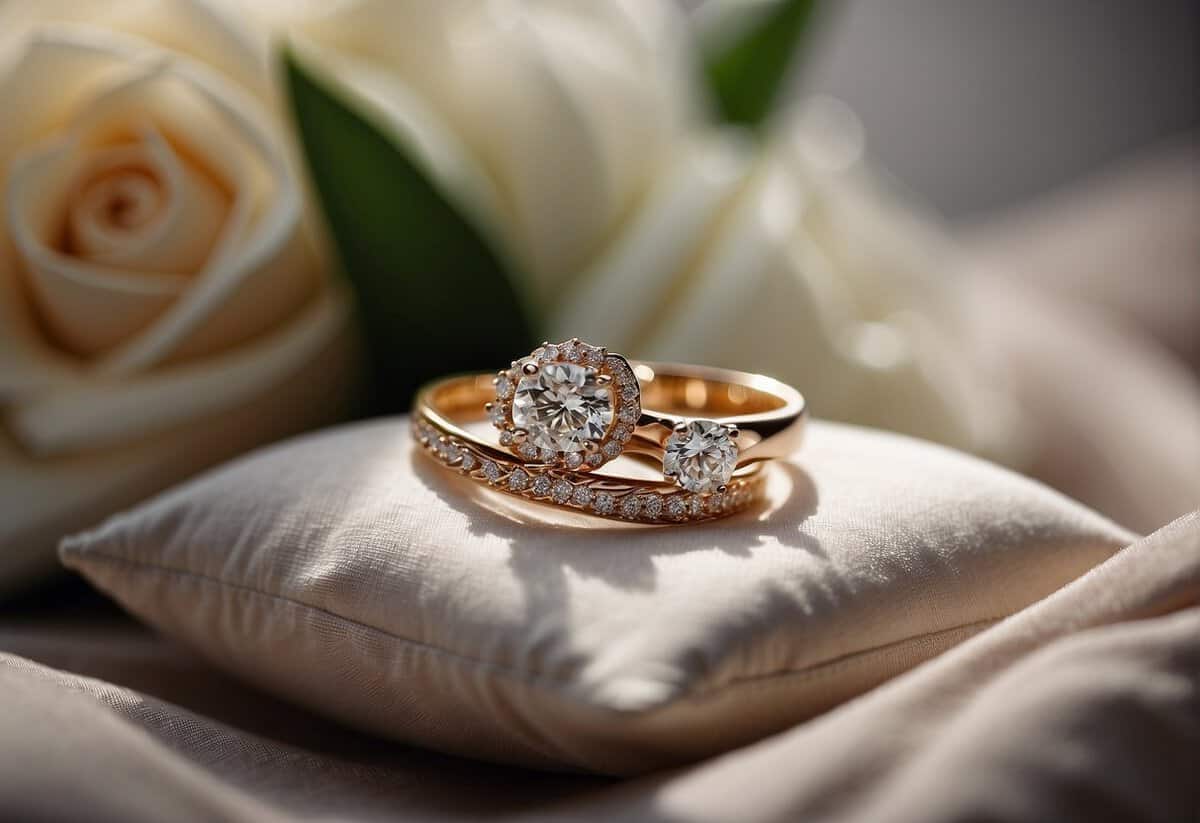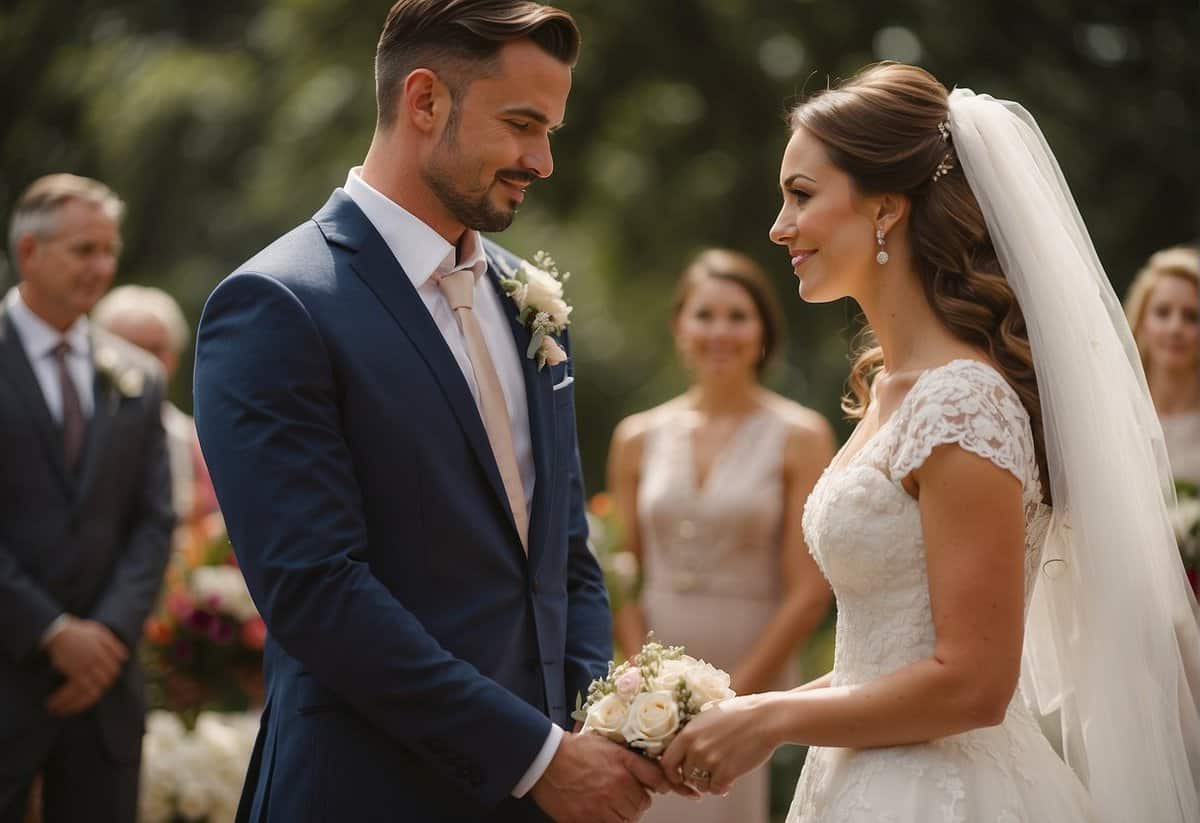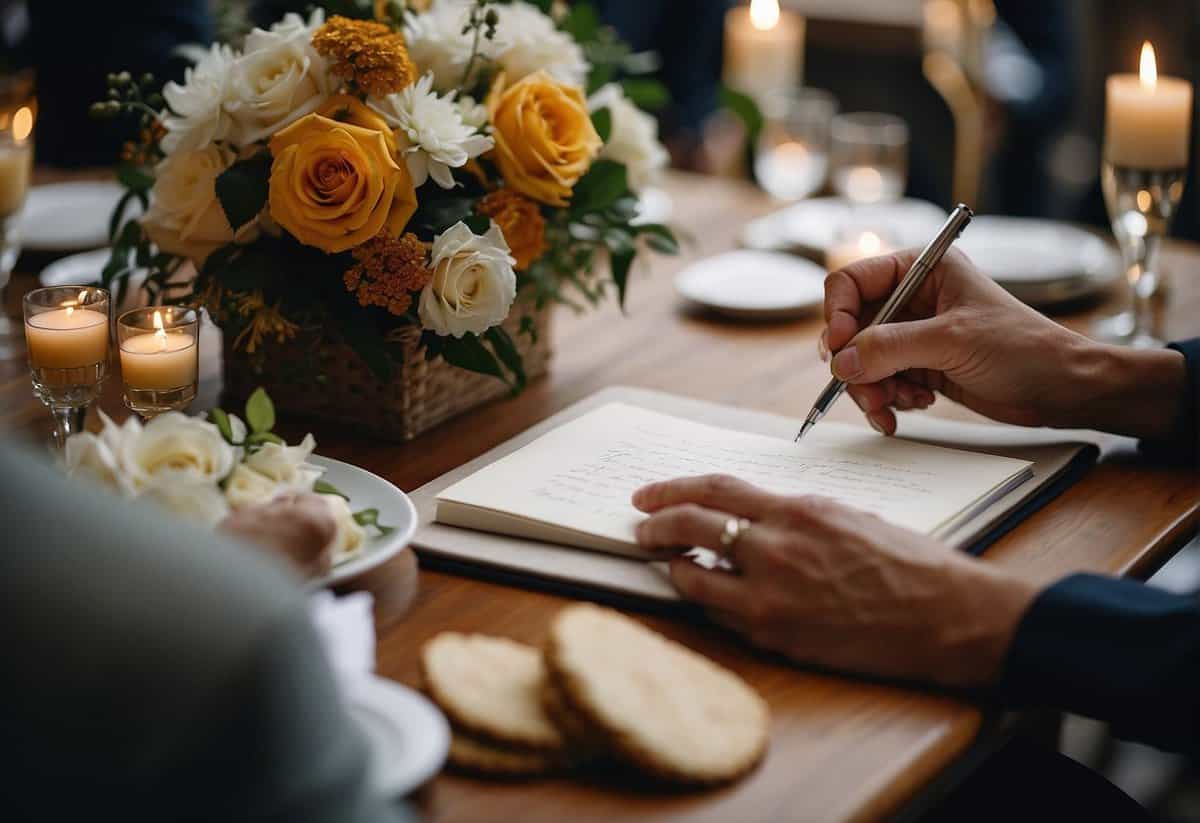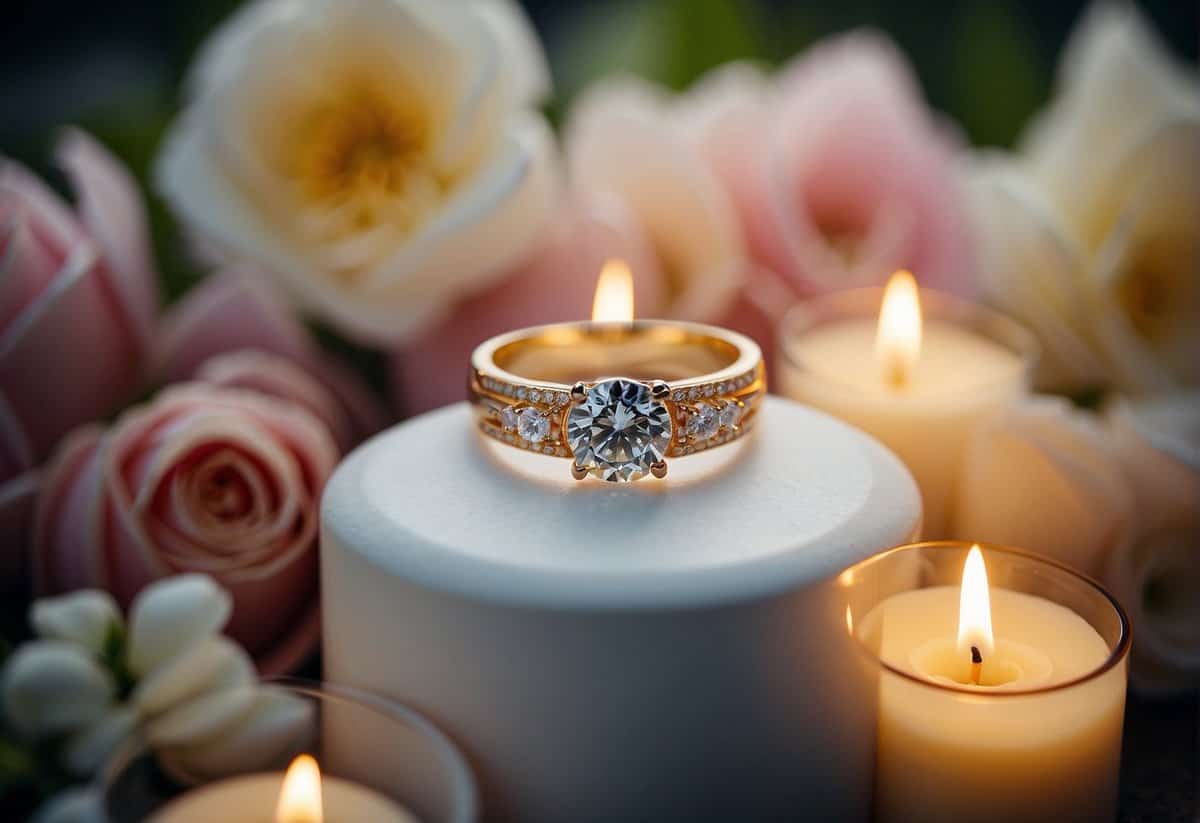What Is the Most Important Role in a Wedding? Unveiling the Heart of the Celebration
When attending or planning a wedding, you might wonder about the most pivotal roles within the ceremonial tapestry. Traditionally, the bride and groom stand at the heart of the day as they are the central figures of the celebration, their commitment being the reason behind the event. However, alongside them, a myriad of other roles play crucial parts in ensuring the proceedings go smoothly.

The wedding party, encompassing positions like the maid of honor and best man, shoulder a variety of responsibilities that support the couple both in the lead-up to and during the wedding. From coordinating events such as the bridal shower to last-minute dress adjustments, their contributions can be indispensable. Meanwhile, the actual ceremony and reception require the orchestration of several participants, ensuring that the celebration reflects the couple’s wishes and proceeds joyfully.
Key Takeaways
- The bride and groom’s role is central to the wedding celebration.
- The wedding party provides essential support and organization.
- A successful ceremony and reception depend on the coordinated efforts of all roles involved.
The Bride and Groom

As you plan your wedding, it’s essential to understand the roles that you and your partner will play. Not only are you the stars of the ceremony, but you’re also the chief decision-makers and the primary source of emotional support for each other throughout the engagement and wedding planning process.
Emotional Support and Decision Makers
You and your partner provide each other with emotional support during what can be a stressful time. Planning a wedding involves a myriad of choices from setting the wedding date to selecting wedding bands. Open communication between both of you will be essential as you make decisions that will set the tone for your special day. Remember that your engagement is not just about the event itself but also about strengthening your bond as you transition into married life.
Legal and Ceremonial Duties
Your roles entail more than just planning; they include fulfilling legal and ceremonial duties. Obtaining a marriage license is one of the several paperwork tasks that you’ll need to handle. During the wedding ceremony, you’ll exchange vows and rings, which symbolize your commitment to each other. Make sure to keep track of the legal documents you’ll sign to make your union official in the eyes of the law. These critical steps are part of the foundation of your upcoming marriage.
Wedding Party Contributions

When planning your special day, understanding the various roles and contributions of the wedding party can be pivotal to ensuring a smooth celebration. Each member plays a unique part that supports the couple and contributes to the overall success of the event.
Maid of Honor and Best Man
Maid of Honor: Typically, your maid of honor is your right-hand woman. Her duties are extensive and can include helping with the wedding planning checklist, organizing the bridesmaids‘ wedding attire, and leading the bachelorette party. She often also plays a key support role on the wedding day itself.
Bridesmaids: As part of her team, she oversees the bridesmaids, aligning their involvement with the bridal showers and pre-wedding activities.
Wedding Day Assistance: Offers emotional support to you, assists with your gown, and holds your bouquet during the ceremony.
Best Man: The best man has the honor of supporting you like no other. His tasks range from coordinating the bachelor party to handling the couple’s rings. On the day, he’s also there to ensure the groomsmen are looking sharp and ready.
Groomsmen: He is to keep the groomsmen in check, making sure they understand their wedding responsibilities, including organizing the rehearsal dinner and being punctual for the ceremony.
Moral Support: Provides moral support and might be tasked with delivering the first toast during the reception.
Role of Parents
Bride’s Parents: Traditionally, the parents of the bride may contribute to the costs and planning logistics.
Mother of the Bride: The mother of the bride often assists with selection of her attire and offers support throughout the planning process and on the wedding day.
Father of the Bride: May be involved in finances and is honored with tasks like escorting his daughter down the aisle and the father-daughter dance.
Parents of the Groom: They are not to be overlooked, as their roles are equally important.
Mother of the Groom: She might host a special dinner before the wedding and help the groom with selecting his family’s attire.
Father of the Groom: Usually shares in the responsibilities of the rehearsal dinner and other pre-wedding festivities.
Both sets of parents serve as part of the family foundation that supports the couple through their wedding journey.
The Ceremony and Reception
The ceremony and reception are the two pivotal events in your wedding, each involving specific roles and logistical arrangements that together create a memorable day. The ceremony is where you’ll exchange your vows, and the reception is where you’ll celebrate with guests, enjoying food, dance, and festivities.

Ritual Participants
Your wedding ceremony centers around you and your partner, but several other roles are crucial for the ritual. Invitations should be sent to your guest list, which includes not only friends and family but also the ritual participants.
- Flower Girl/Flower Boy/Page Boy: Typically a young child who scatters flower petals down the aisle.
- Ring Bearer: Responsible for carrying the rings to the altar.
- Candle Lighter: Lights the candles at the start of the ceremony.
- Reader: Reads selected poems, scriptures, or literary excerpts.
- Ushers: Guide guests to their seats.
- Wedding Program Attendant: Hands out programs detailing the order of events.
- Junior Bridesmaids/Junior Groomsmen: Often preteens who partake in the ceremony, similar to adult bridesmaids and groomsmen.
- Pages: Assist the bride with managing her train or veil.
At the reception, activities such as the father-daughter dance and cutting the cake involve specific members of the wedding party.
Key Vendors and Logistics
Selecting the right vendors and coordinating logistics are essential for a smooth-running day:
Key Vendors:
- Photographer: Captures all key moments, from walking down the aisle to the final dance.
- Florist: Provides floral arrangements for the venue, bridal party, and reception decor.
- Getaway Car Service: Offers a memorable exit from the reception.
Logistics Overview:
- Wedding Venue: Choose a location that accommodates both the ceremony and reception to ease transitions.
- Hotel Rooms: Reserve blocks of rooms for out-of-town guests, particularly for a destination wedding.
- Transportation: Plan for shuttles or cars to transport guests, if required.
The logistics of your wedding flow into a seamless experience from the moment your guests receive their beautifully crafted invitations to the instant you make your grand getaway. By carefully selecting each participant and vendor, your ceremony and reception will come together to create the enchanting day you’ve imagined.
Frequently Asked Questions

In your journey to plan the perfect wedding, you might have questions about the various roles that contribute to the big day. Here’s a concise guide to understand who does what in a wedding ceremony.
What are the traditional roles in a wedding ceremony?
Traditionally, your wedding party will include the Maid of Honor and Best Man, bridesmaids, groomsmen, flower girl, and ring bearer. Each plays a specific part in both the ceremony and support leading up to the wedding.
Can you list all the members of a wedding party?
Certainly! A complete wedding party typically consists of the couple, the Maid of Honor, Bridesmaids, Best Man, Groomsmen, Flower Girl, Ring Bearer, Parents of the Bride and Groom, and often includes Ushers, Page Boys, and Train Bearers.
What are some unique roles friends can play in a wedding?
Friends can get involved in unique ways, such as being the ceremony officiant, personal attendant, or a reader during the ceremony. They might also host pre-wedding events or manage the guestbook.
How are family members typically involved in wedding roles?
Family members are often at the forefront of a wedding, with roles such as giving away the bride, making toasts, and participating in cultural or familial traditions. Parents often play significant parts in the procession and reception.
Who typically has the most responsibilities during a wedding?
The Maid of Honor and Best Man usually shoulder the most responsibilities. They support the couple, lead the wedding party, and handle important tasks like holding the rings, giving speeches, and coordinating the bachelor and bachelorette parties.
Who are the key players to ensure the wedding day runs smoothly?
Wedding planners or coordinators and the Master of Ceremonies (MC) are pivotal in ensuring everything runs on time and without hitches. They oversee the logistics, from the ceremony to the reception, helping to create a seamless experience.

